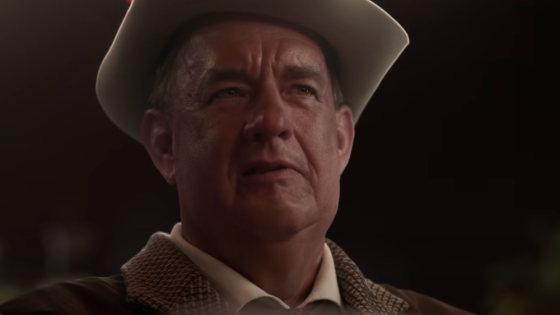Would you buy a car from an AI chatbot? What if it looked and talked like Tom Hanks?
These are the sorts of questions kicking around Sacramento, where lawmakers are considering a slew of proposals to regulate artificial intelligence.
SAG-AFTRA, the union representing Hollywood actors, is pushing for legislation that would require detailed consent for the use of “digital replicas.” In a separate bill, the union also wants to prevent studios from putting dead performers in movies without the consent of their heirs. Underscoring the contentiousness around AI, the Motion Picture Association has come out against the digital replicas bill.
If passed, the California measures would expand significantly on AI provisions won during last year’s 118-day SAG-AFTRA strike, which limit what studios can do in movies and scripted TV shows.
The bill requiring consent for digital replicas, AB 2602, would apply more broadly to all sorts of performance contracts, including audiobooks, videogames, product endorsements and musical performances.
The union is not trying to stop actors from cashing in on their AI avatars, who could be enlisted for everything from selling mortgages to giving Zoom therapy. But it does want to make sure that such permission is knowingly granted.
Existing performance contracts often include sweeping language that allows exploitation “throughout the universe,” “in all media whether now known or hereafter devised.” Such terms could be read to allow AI replicas without further compensation. The bill would prohibit that, making such provisions “unconscionable” and incapable of being enforced.
“We live in a world where your replica can do your work for you,” said Jeffrey Bennett, general counsel of SAG-AFTRA. “I can’t think of anything more important or more dangerous than the concept of you being replaced by yourself.”
The MPA argues that the digital replicas bill, as currently written, would restrict the use of standard post-production techniques, some of which have been around for decades, by requiring that every conceivable alteration be agreed upon in advance.
“There are countless examples of changes, edits, additions, and alterations that are made on productions that will not be able to be known at the time a contract is made,” the MPA argued.
Those concerns were underscored when the bill’s author, Assemblyman Ash Kalra, presented it to an Assembly committee last week. Kalra, D-San Jose, appeared to suggest that the bill would outlaw “tiling,” the VFX process commonly used to create crowd scenes.
“The Apple TV+ series ‘Ted Lasso’ utilized technology to essentially copy and paste dozens of background actors in an attempt to artificially fill soccer stadiums with spectators,” Kalra said, “effectively allowing studios to avoid paying real people while at the same time benefiting from using their digital copy or likeness.”
SAG-AFTRA leaders have previously said they are not trying to eliminate post-production practices already in common use. The union’s contract with the studios explicitly allows tiling. Further revisions to the bill may make clear that tiling will still be allowed.
SAG-AFTRA has occasionally gone to Sacramento for help in winning things it could not achieve at the bargaining table. In 2022, the union won significant concessions on actor exclusivity deals after the Legislature threatened to make such deals invalid.
In this instance, the union is still in negotiations with the major videogame makers, and is attempting to win AI protections similar to those in the studio deal. The legislation could effectively impose SAG-AFTRA’s preferred terms on those companies.
The studio agreement also includes nuances and exceptions that are not found in the proposed legislation. The bill requires that a contract “clearly define and detail all of the proposed uses” of a performer’s digital replica. The studio contract requires only that the description be “reasonably specific,” and it explicitly allows standard VFX work.
The legislation would allow the terms of SAG-AFTRA’s deal to take precedence, meaning it would only apply in areas where an AI agreement has not been made. As written, the law would also apply retroactively to any contract made before AI provisions were included as standard terms.
The SAG-AFTRA contract with the studios also requires consent from an actor’s estate to recreate their digital likeness. But the provision includes a significant exception for uses in historical films, docudramas, satires or parodies.
For example, the Apple TV+ drama series “For All Mankind” used various digital techniques to recreate President Ronald Reagan and other historical figures. The contract would not require the permission of Reagan’s heirs to do that.
That exception mirrors one in state law, which allows the use of a dead performer’s name and likeness in “expressive works” — like movies, plays, novels and songs — even if the estate does not consent. Unauthorized biopics, or novels that depict celebrities, are ultimately protected by the First Amendment.
SAG-AFTRA is seeking another revision to state law, AB 1836, that would narrow the exception. The bill would prohibit certain unauthorized uses of dead performers in films, TV shows or songs. The limitation would apply only if the performer’s digital replica was used “in any manner related to the work performed by the deceased personality while living.”
The bill is intended to prevent a glut of zombie AI performances, which would compete in the marketplace against human performers, both living and dead. It would still allow historical depictions of dead celebrities similar to the ones on “For All Mankind” or other docudramas.
That bill is due for a hearing on April 16.
Source Agencies


